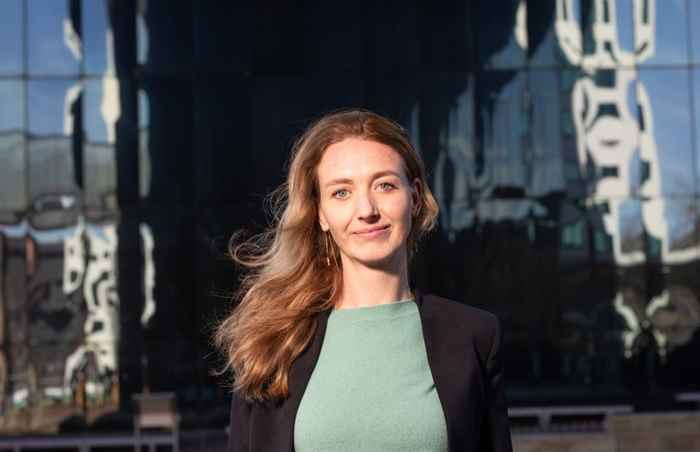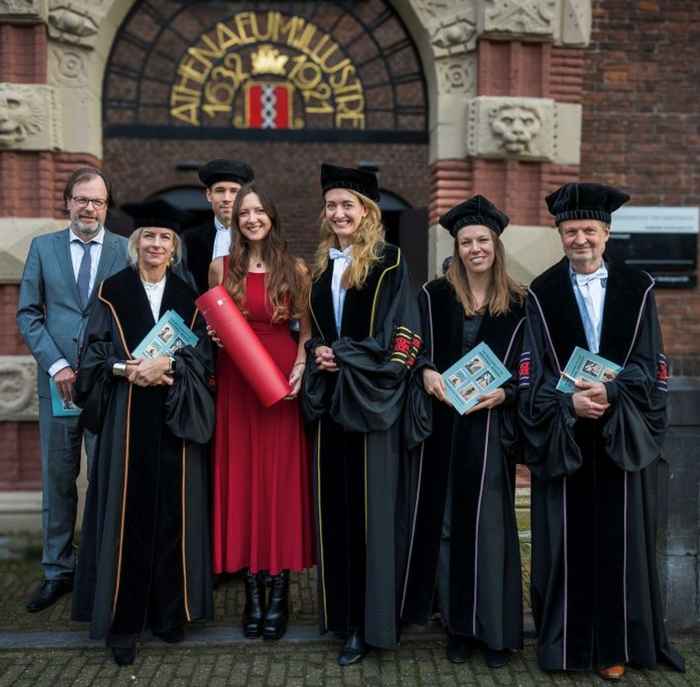‘If you are interested in research, go for it, even if you’re not at the top of the class. Interest and motivation matter more than grades.’

From a young age, I was fascinated by how the brain works, inspired by Oliver Sacks’ stories about brain damage and strange behaviours. This interest led me to study psychology, where I quickly became drawn to research. However, I also wanted to work with patients, so I specialised in clinical neuropsychology.
During my internship, I worked on cases involving brain injury, dementia, and stroke-related cognitive changes. But I found clinical work too focused on diagnostics and treatments, often without fully understanding why or how they worked. This sparked my fascination with the question: What is really happening in the brain?
So you made the switch to the Research Master's?
Yes, my professor in clinical neuropsychology suggested I consider it, saying, ‘This programme has a great reputation; it might be a good fit for you.’ I hadn’t realised it was an option. Back then, you could still pursue research with a clinical Master’s, and some even went on to do a PhD from that background. However, clinical research was focused more on improving tests or treatments, which didn’t interest me as much.
I was drawn to fundamental, experimental research and wanted to understand the underlying mechanisms. For that, I needed more advanced research skills. The Research Master's was a perfect fit, because it focuses also on research design and analyses.
Creativity is just as important. When designing a study, you need to be inventive.
Do you need to be into statistics and data to enjoy this programme?
The programme focuses on quantitative research. You learn how to design studies with high experimental control, and to make sense of the data using advanced statistical techniques. So you definitely need enthusiasm for numbers. If you prefer a qualitative approach to understanding data, there are other masters that are a better fit.
But creativity is just as important. When designing a study, you need to be inventive.
How did you find the workload?
It was intense. The workload was high, but with plenty of contact hours and good supervision, I managed. You apply theory to practice right away, which helps you stay engaged and on track. It’s very different from a Bachelor’s, where you're more on your own.
What about the supervision? Did you feel well-supported?
Supervision in the Research Master's is excellent. The study advisors are easily accessible, and the environment is open. You’re encouraged to seek guidance whenever you need it, whether for content-related questions or other advice.
And the professors, what’s it like learning from them?
The professors are active researchers in their fields, which makes the experience valuable. Unlike introductory courses, you dive deep into specific topics. Direct contact with researchers helps you develop your own research interests. You can even work as a student assistant to gain research experience and contribute your ideas.
This experience helps shape your career and gives you a clear picture of university research and professors' daily work.
So, you get to interact with researchers and participate in their projects?
Absolutely. It is a huge advantage that the program is embedded in a department (Psychology). This facilitates direct, personal contact with researchers, allowing you to ask questions and contribute to projects. This experience helps shape your career and gives you a clear picture of university research and professors' daily work. It also helped me expand my global network.
What motivated you to stay in academia after your Master’s?
I always knew I wanted to do research but wasn’t sure in which field or with whom. Those two years helped me figure it out and gave me direction. I’m glad I took the time to discover the type of research I wanted to pursue.


What advice would you give future Research Master students?
Don’t feel you need to have everything figured out at the start. Use those two years to explore and don’t be afraid to try things that aren’t the right fit. You might even learn more from that. Focus on what you can learn and the connections you make, not just grades.
Also, don’t let insecurity hold you back. I always thought research was for "really smart people" and didn’t see myself as one of them. But as I delved into topics I enjoyed, I became a better student. If you meet the requirements and are interested in research, go for it, even if you’re not at the top of the class. Interest and motivation matter more than grades.